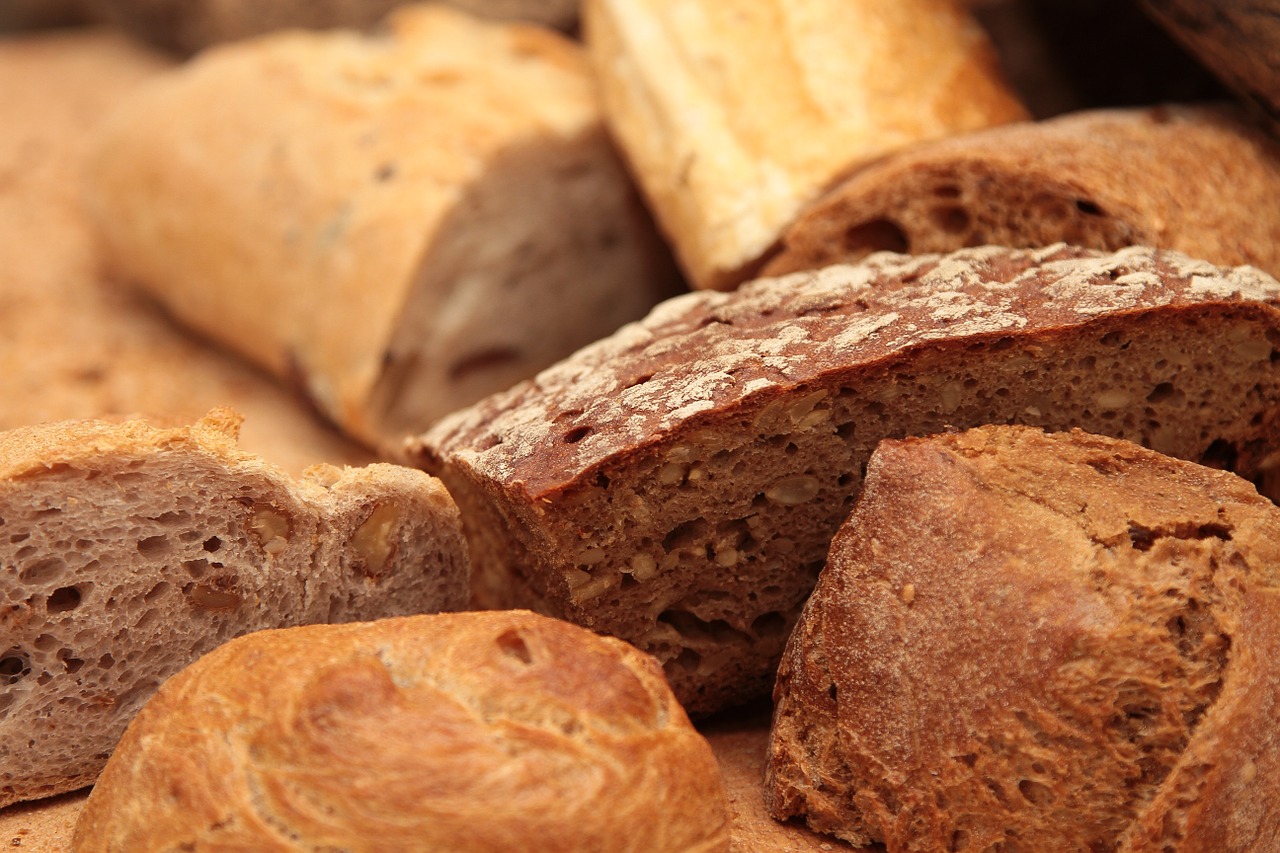Want to stay healthy? Rather have breakfast with a sandwich
Benefits of bread:
- Bread contains dietary fiber (at least true whole grain bread)
- Bread contains iodine
- Bread is widely available
- Bread is a quick meal
Disadvantages of bread:
- Bread causes a very rapid rise in blood sugar (yes even dark bread does this). A whole white bread from the supermarket: contains 62.5 sugar cubes. This causes spikes in insulin production. The blood sugar spikes cause you to crave again very quickly and keep eating. Every week, yes you read that correctly, there are over 1,000 more diabetes II patients.
- Bread made from wheat, spelt, rye, kamut or barley contains gluten. You may be allergic or intolerant or you may be enzymatically unable to break down the exorphins from gluten (exorphin problem). Not broken down exorphins can cause inflammation in the intestine and intestinal wall (leaky gut). This can cause a variety of symptoms such as bloating, abdominal pain, flatulence, problems with bowel movements, autoimmune diseases, psychological complaints and fatigue or eczema. It is even increasingly associated with certain serious brain diseases, ADHD, schizophrenia and autism.
- Grains contain phytic acid, which inhibits the absorption of several important minerals.
- The yeast in bread can cause an overgrowth of the fungus Candida in the gut. This can also cause various symptoms such as bloating, abdominal pain, flatulence, problems with bowel movements, itching, thrush, fungal infections and fatigue.
- Factory breads also contain a number of other ingredients that won't make you so happy, such as sugar, glucose-fructose syrup, trans fats and bread improver (often derived from hair of Chinese people)
Is bread indispensable?
In any case, bread does not contain nutrients that you cannot get from another product, so it is not essential anyway. You can get dietary fiber just fine from fruits and vegetables. And that iodine can be a serious problem, Professor Peeters is right. Iodine naturally occurs in sea foods such as seaweed, shellfish and certain types of fish - but not much. In the old days (not in the old days when you were little but in the old days when you were now walking around in one of those rough nightgowns with a club in your hands), we got it by eating a lot of fish and/or from iodine-rich vegetables of the earth. Nowadays, we hardly ever eat it. When was the last time you ate a plate of seaweed? That's why we started adding it. To salt. Because we get a nice amount of that. You can find iodized salt (jozo) in jars in the supermarket and in bread. But then again, your doctor advises not to eat too much salt because that's bad for your blood pressure, among other things. You need about 150 mcg (micrograms) of iodine per day. If you are pregnant, it is 175mcg and if you are breastfeeding, even 200mcg. If you eat regular bread, you get about 24mcg per slice (16% RDA). That's not very much either; the rest you get with trace amounts from vegetables, meat products and products to which iodized salt has been added. Even with a normal Dutch diet it is difficult to get your iodine. Especially if you hardly ever eat seaweed. You do need iodine. For proper thyroid function, and therefore for proper temperature regulation, optimal thinking capacity, a healthy nervous system and good body weight. With too little iodine, the thyroid slows down. There is still intense debate about whether too much iodine also stimulates the thyroid gland to work too hard. An interesting question, but in practice no one gets too much iodine "accidentally" anyway, so what's the point. A deficiency is much more likely to occur, and there are many people with (sluggish thyroid due to) a hidden iodine deficiency. Supplement? So what then? Real food, but in this case a supplement is certainly as easy, 2 drops a day. And otherwise................. palatable with those kelp.

